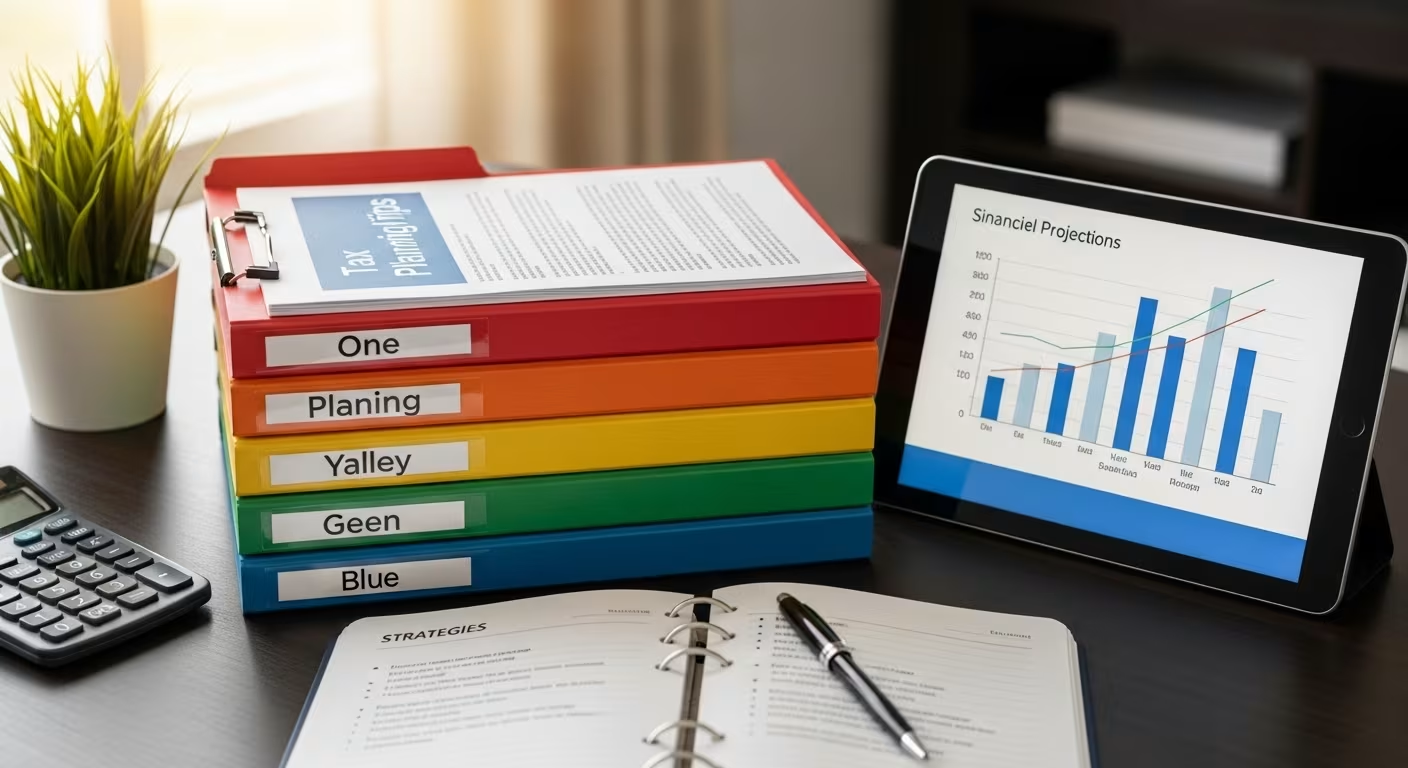As a business owner, corporate tax planning is essential to ensure that your company remains compliant and takes advantage of all available tax deductions and benefits. Whether you're new to owning a corporation or looking to streamline your tax preparation, this checklist is a great way to organize your corporate finances and maximize tax savings. Let's dive into some of the most critical areas of corporate tax planning.
1. Key Information You Need to Gather
Before diving into tax planning, it's essential to have accurate and up-to-date information about your corporation. This includes:
- Company Details: Name, mailing address, phone number, date of incorporation, and year-end.
- Shareholder Information: Who are the shareholders, and what share classes do they hold?
- Income & Expense Questions: Expected yearly sales, personal monthly living expenses, any additional sources of income, and whether you plan to hire employees.
By collecting this information, you can tailor your tax strategy to your company’s unique circumstances and goals.
2. Understanding Tax-Deductible Expenses
Tax-deductible expenses are one of the most crucial aspects of corporate tax planning. Being aware of all the deductions available to your business can significantly reduce your tax liability. Here's a list of some common deductible expenses:
- Advertising: Promotional and marketing efforts.
- Bank Fees: Costs incurred from managing your corporate bank account.
- Legal & Accounting Fees: Professional services that help your business stay compliant.
- Office Supplies: Items needed to keep your business running smoothly.
- Salaries & Wages: Payroll expenses for employees.
Take the time to review your expenses and categorize them properly. Keeping thorough records throughout the year will make filing your taxes much simpler.
3. Motor Vehicle Expenses
If you or your employees use a vehicle for business purposes, some of those costs can be deducted. Deductible motor vehicle expenses may include:
- Gas
- Insurance
- Repairs & Maintenance
- Lease Payments
- Interest on Loans
It’s essential to keep a logbook that tracks kilometers driven for business purposes and details like the date and purpose of each trip. Proper documentation will ensure you maximize this deduction and remain compliant with tax regulations.
4. Home Office Expenses
If you work from home, you may be able to deduct a portion of your home office expenses. These deductions depend on the percentage of your home used for business purposes. Potential deductions include:
- Rent (if you're renting): A portion of your monthly rent based on the size of your home office.
- Utilities: Electricity, gas, and water expenses.
- Property Taxes and Insurance: For homeowners, these costs can also be partially deductible.
Understanding these deductions can lead to significant tax savings if you operate your business from a home office.
5. Compensation Planning: Salary vs. Dividends
Another critical aspect of corporate tax planning is deciding how you, as a business owner, will be compensated. You have two primary options:
- Salary: A salary is subject to personal income tax but allows for deductions such as childcare expenses.
- Dividends: Dividends are taxed at a lower rate than salary, but they do not offer the same deductions. The recommended monthly dividends can vary depending on your gross personal income and other factors.
Work with a tax advisor to determine the best approach for your compensation based on your financial needs and tax situation.
6. Sales Tax Filing Methods
When it comes to filing your sales tax, you generally have two options:
- Traditional Method: This method is best suited for businesses that pay a significant amount of HST on expenses.
- Quick Method: This option is ideal for businesses that incur minimal HST expenses, as it simplifies the process of calculating tax obligations.
Consult your accountant to determine which method works best for your corporation.
7. Keeping Proper Accounting Controls
Proper accounting controls are crucial for tax planning and compliance. This involves ensuring that:
- Business Expenses Are Paid from the Corporate Bank Account: Keep your business and personal expenses separate.
- Credit Card Expenses Are Tracked: All corporate credit card charges should be for business-related expenses only.
- Reimbursements Are Handled Properly: If a shareholder or employee pays for business expenses, make sure the company reimburses them through proper documentation and records.
By maintaining proper controls, you reduce the risk of errors or issues when filing your taxes.
8. Stay on Top of Tax Compliance Deadlines
Missing tax deadlines can result in penalties and interest, so it's essential to know when your taxes are due. Some common deadlines include:
- HST Returns
- T4 and T5 Slips
- Payroll Remittances (PD7A)
- Corporate Tax Returns and Payments
Having a clear calendar of tax deadlines and working with an accountant will ensure you stay compliant and avoid costly penalties.
Final Thoughts
Corporate tax planning can feel overwhelming, but with the right strategy and a clear checklist, you can minimize your tax liability and ensure compliance with Canadian tax laws. Whether it's maximizing deductions, managing compensation, or staying on top of deadlines, having a tax plan in place is crucial for your company's financial health.
For personalized corporate tax planning advice, consider working with an experienced accountant who can guide you through the complexities of the tax system and help you make the most informed decisions for your business.









